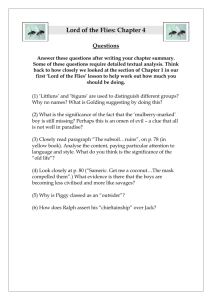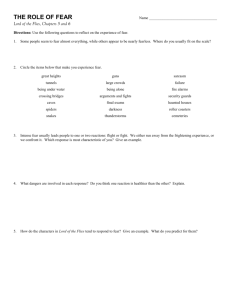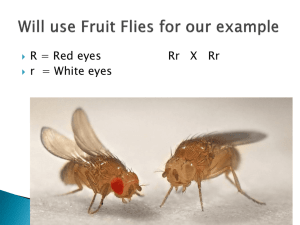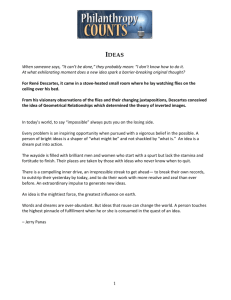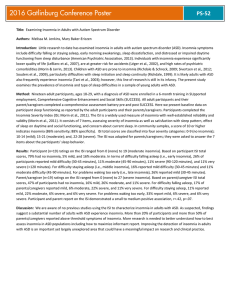2 Sides of the Coin Sometimes things aren't as they seem. In the
advertisement
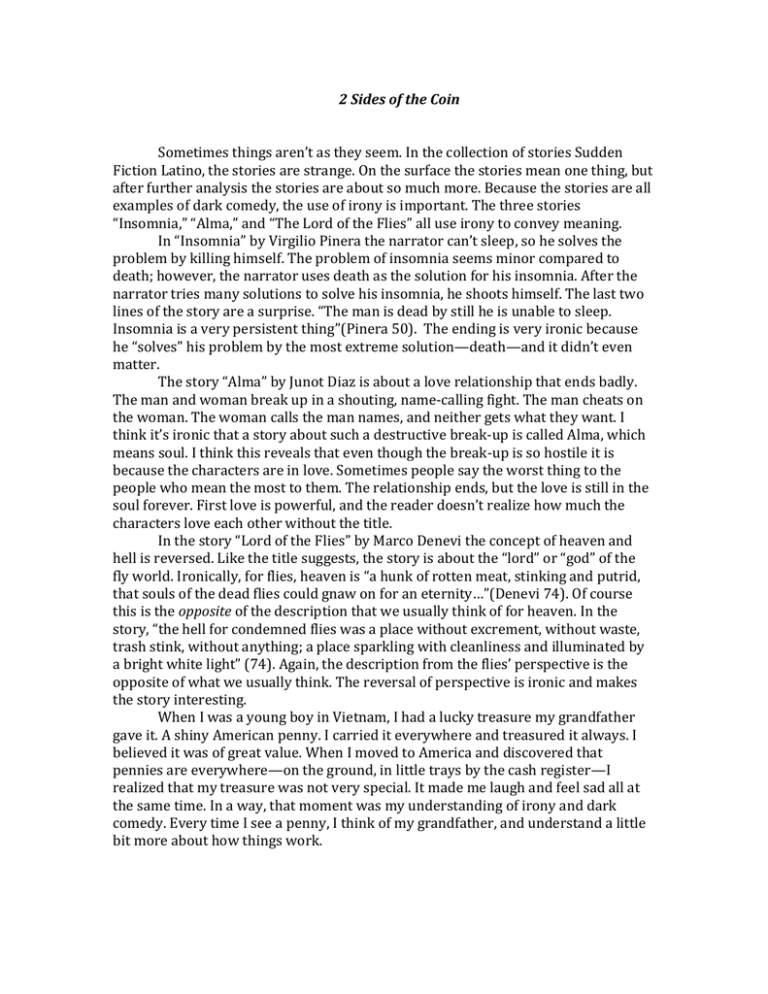
2 Sides of the Coin Sometimes things aren’t as they seem. In the collection of stories Sudden Fiction Latino, the stories are strange. On the surface the stories mean one thing, but after further analysis the stories are about so much more. Because the stories are all examples of dark comedy, the use of irony is important. The three stories “Insomnia,” “Alma,” and “The Lord of the Flies” all use irony to convey meaning. In “Insomnia” by Virgilio Pinera the narrator can’t sleep, so he solves the problem by killing himself. The problem of insomnia seems minor compared to death; however, the narrator uses death as the solution for his insomnia. After the narrator tries many solutions to solve his insomnia, he shoots himself. The last two lines of the story are a surprise. “The man is dead by still he is unable to sleep. Insomnia is a very persistent thing”(Pinera 50). The ending is very ironic because he “solves” his problem by the most extreme solution—death—and it didn’t even matter. The story “Alma” by Junot Diaz is about a love relationship that ends badly. The man and woman break up in a shouting, name-calling fight. The man cheats on the woman. The woman calls the man names, and neither gets what they want. I think it’s ironic that a story about such a destructive break-up is called Alma, which means soul. I think this reveals that even though the break-up is so hostile it is because the characters are in love. Sometimes people say the worst thing to the people who mean the most to them. The relationship ends, but the love is still in the soul forever. First love is powerful, and the reader doesn’t realize how much the characters love each other without the title. In the story “Lord of the Flies” by Marco Denevi the concept of heaven and hell is reversed. Like the title suggests, the story is about the “lord” or “god” of the fly world. Ironically, for flies, heaven is “a hunk of rotten meat, stinking and putrid, that souls of the dead flies could gnaw on for an eternity…”(Denevi 74). Of course this is the opposite of the description that we usually think of for heaven. In the story, “the hell for condemned flies was a place without excrement, without waste, trash stink, without anything; a place sparkling with cleanliness and illuminated by a bright white light” (74). Again, the description from the flies’ perspective is the opposite of what we usually think. The reversal of perspective is ironic and makes the story interesting. When I was a young boy in Vietnam, I had a lucky treasure my grandfather gave it. A shiny American penny. I carried it everywhere and treasured it always. I believed it was of great value. When I moved to America and discovered that pennies are everywhere—on the ground, in little trays by the cash register—I realized that my treasure was not very special. It made me laugh and feel sad all at the same time. In a way, that moment was my understanding of irony and dark comedy. Every time I see a penny, I think of my grandfather, and understand a little bit more about how things work.

